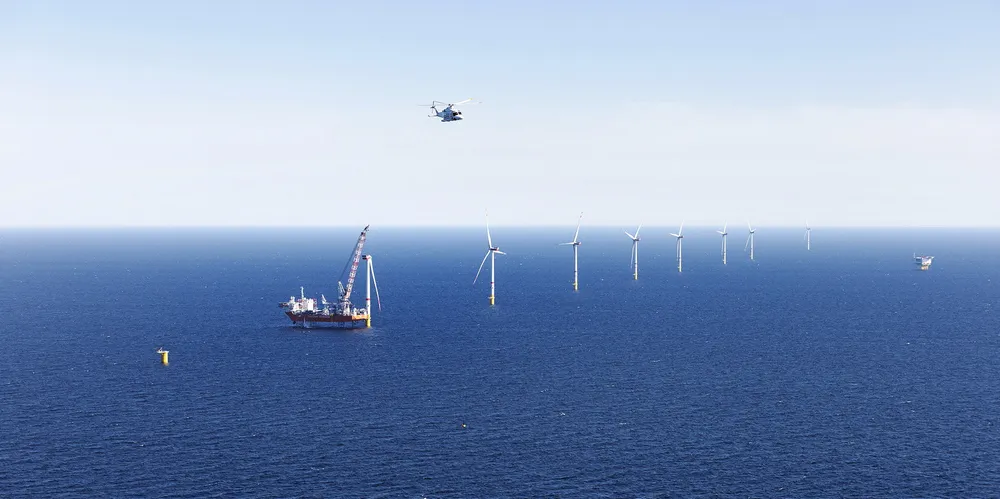Vestas to test sustainable aviation fuel in helicopters to Baltic Sea offshore wind project
Pilot project to blend 40% of SAF into conventional aviation fuel in crew flights to Iberdrola and Masdar’s Baltic Eagle project in Germany

Vestas this year will test sustainable aviation fuel (SAF) at helicopter flights carrying technicians and jack-up vessel crew to a Baltic Sea offshore wind project.
“There is a significant need for more sustainable solutions during these wind farms' construction and operation phases,” said Kieran Walsh, senior vice president at Vestas Northern & Central Europe.
“The potential for using SAF in offshore operations is high and we are pleased to further exploit this potential.”
Offshore wind projects have higher CO2 emissions from construction and service operations in relative terms than onshore wind projects due to the need for vessels and helicopters.
The pilot project is scheduled to take place until September 2024.
Helicopter service provider HeliService will use helicopters from Leonardo S.p.a. fuelled with a blend of conventional jet fuel and SAF provided by DCC & Shell Aviation Denmark.
The blend rate of 40% SAF is close to the highest possible blend rate permitted today and it is the first time that SAF-fuelled helicopters with such a high blend rate are used for an entire part during the construction phase of an offshore wind farm operation, Vestas said.
The company expects CO2 savings of about 32% per flight compared to using a standard helicopter powered by conventional jet fuel.
“The delivery of SAF to Roskilde Airport, which will serve as a helicopter base during Vestas' pilot project, marks another milestone in our efforts to support the growing demand for alternatives to conventional jet fuel,” said Sune Petersen, head of strategy and sustainability at DCC & Shell Aviation Denmark.
“It also marks an initial step towards introducing SAF into the fuel mix for helicopter services - not only in Denmark but also on a European scale.”
(Copyright)